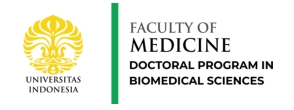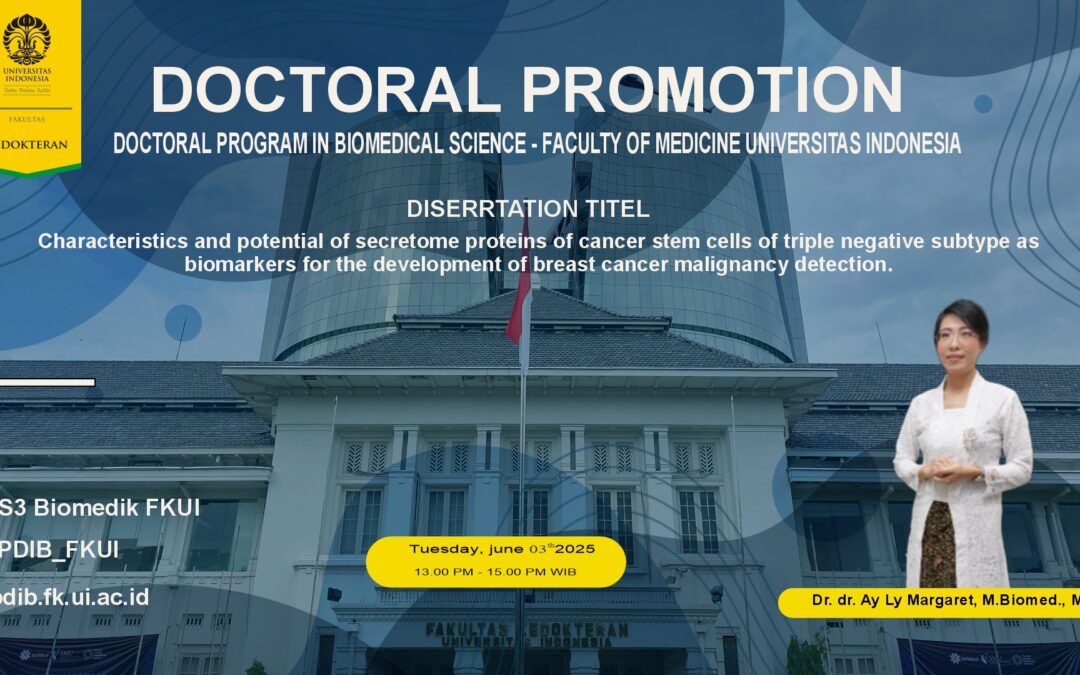Breast cancer is still one of the main scourges for women around the world. In Indonesia, thousands of women each year face the bitter reality of a breast cancer diagnosis, which often comes too late. Although medical technology has developed a lot, the process of detecting breast cancer still relies on invasive procedures such as tissue biopsy. But now, a doctoral study from the University of Indonesia (UI) offers new hope. Dr. Ay Ly Margaret, M.Biomed., MBA. a researcher from the Doctoral Program in Biomedical Sciences, Faculty of Medicine, University of Indonesia, has succeeded in developing a new approach to detect breast cancer malignancy through blood samples. This method is known as liquid biopsy. Not only is it more comfortable and painless, this method also allows for faster cancer detection and can be done repeatedly. This study focuses on the ‘trace’ of proteins released by cancer stem cells (SCCs), namely malignant cells that are responsible for recurrence, spread of cancer cells, and resistance to therapy. By combining computer analysis (in silico), laboratory tests of cells (in vitro), and patient samples (plasma), researchers identified four candidate proteins that have great potential as markers of cancer stem cells, namely FOXO1, FYN, OCLN, and TOР2А.
The results of the study showed that the combination of two proteins – FOXO1 and FYN – can be used as a biomarker to detect breast cancer malignancy based on the presence of cancer stem cells. The test results showed a good level of accuracy, indicating that this method could be a new way to detect cancer more precisely in the future.
What does this mean for society? With this method, breast cancer detection can be done earlier, in a much more comfortable way. Patients no longer need to wait for the tumor to grow or undergo painful tissue biopsies. With just a blood sample, doctors can find out if there is potential for malignancy in the patient’s body.In addition to having a direct impact on patients, this research also paves the way for the development of molecular-based cancer detection technology in Indonesia. With a precision and non-invasive approach, the medical world can provide better, faster, and patient-centered services.
“By detecting ‘traces’ of proteins released by cancer stem cells in the blood, we can identify the malignancy of breast cancer with a comfortable and low-risk approach,” said Ay Ly Margaret.

